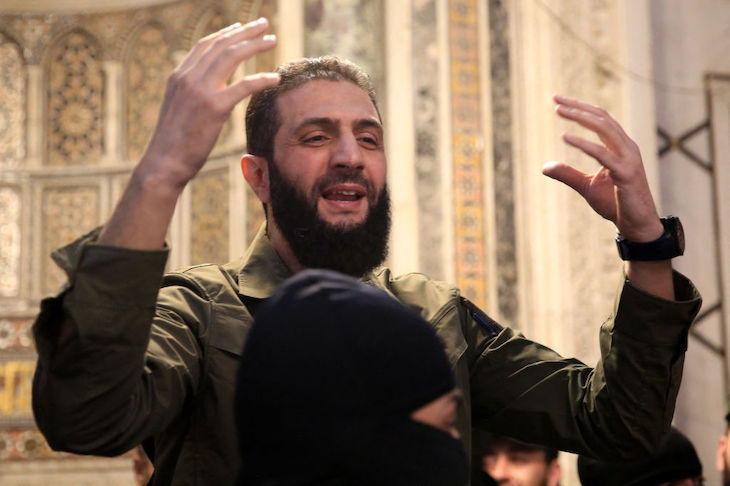Trying to predict what comes next in Syria after the toppling of dictator Bashar al-Assad is a fool’s errand. It is hard not to be moved by the jubilant scenes in Damascus but we have been here before: Assad’s downfall evokes images and memories of far too many other recent uprisings in the region.
The masses celebrating freedom signifies nothing beyond the joy of tasting momentary escape from decades of tyranny
Who can forget the joyful crowds in Baghdad tearing down the statue of Saddam Hussein after the 2003 American-led invasion of Iraq? There was similar joy in Egypt in 2011 when Hosni Mubarak’s thirty-year dictatorship came to an end, and the same collective euphoria greeted the demise of Colonel Gaddafi’s bloody rule in Libya that year.
The masses celebrating freedom signifies nothing beyond the joy of tasting momentary escape from decades of tyranny. It is welcome and understandable enough but it rarely presages democracy – and certainly not in the Middle East. What usually comes next is more violence and bloodshed, followed by another form of authoritarian rule, as has proved the case in Egypt, Libya, Tunisia and Yemen. Syrians may hope for something better but they would be wise to prepare for the worst.
The same worldly realism should be applied to the main rebel group Hay’at Tahrir al-Sham (‘the Organisation for the Liberation of the Levant’, or HTS), which seized the Syrian capital Damascus, and its leader Abu Mohammed al-Jolani. He once fought US troops in Iraq, and was later detained in the notorious Abu Ghraib prison. The United States still has a $10 million (£7.8 million) bounty on his head.
In an interview, conducted in 2014, al-Jolani told a reporter that his goal was to see Syria governed under Islamic law and made clear there was no room for the country’s Alawite, Shiite, Druze and Christian minorities. He claims to have renounced his past as a jihadi extremist and now embraces tolerance and pluralism.
Pat McFadden, the Cabinet Office minister, has says that al-Jolani, who has previously been linked with al-Qaeda, had “distanced himself” from past support for terror and had been “saying different things in recent days. He’s been saying he will protect all the citizens, he will respect religious minorities. We hope that’s true.”
Well, al-Jolani would say that, wouldn’t he? HTS is the most powerful of the rebel groups vying for control of Syria. It is competing for influence with another Turkey-backed group based in northern Syria, as well as a secular Kurdish-led alliance in eastern Syria. Southern Syria is dominated by local rebel groups, including militias led by the Druze minority, an offshoot of Islam. It may well suit HTS to present itself as a moderate movement keen to protect minorities, but it would be foolish to take this group at its word. Ultimately, it is actions rather than words that count.
Recent events in Afghanistan demonstrate the dangers of naivety and optimism all too well. It became fashionable to talk about a new more pragmatic and moderate Taliban 2.0 returning to power in Kabul, but they turned out to be just as fanatical and extreme as the first Taliban rulers of the country. The situation for women in Afghanistan is more dire than ever. The idea that jihadists or those with jihadi roots change their stripes when they actually get into power is for the birds.
Even so, Syrians are entitled to celebrate – if only momentarily – their freedom from the murderous Assad dynasty. The House of Assad has ruled the country since Bashar’s father, Hafez, came to power in 1970. Torture and brutality has become an everyday reality for Syrians for the last five decades. It prompts a wider question. Why is the Middle East riddled with corrupt family dynasties? Think Saddam Hussein and his sons in Iraq, the Gaddafis in Libya and the Mubarak clan in Egypt. Elsewhere, in the Gulf monarchies and Jordan, it is royal families who rule the roost. Tyrants are overthrown, uprisings come and go, but democracy and basic human rights are as elusive as ever in far too many Muslim-majority countries across the region. Many will be hoping that the toppling of Assad will bring better times to Syria and its long-suffering people and that democracy and freedom takes root. I wouldn’t bet on it though.
Watch more on SpectatorTV:








Comments